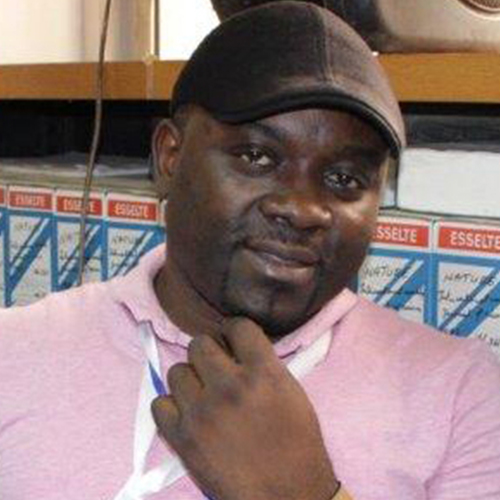
Human Heredity & Health in Africa
How do you
discover Africa's
genetic diversity?
Science Leadership for Transdisciplinary R&D | Science Collaboratives for Pandemics, Epidemics and Endemic Diseases (SCOPE R&D) |Genomics H3Africa
WHAT WE DO
H3 AFRICAThe medical field is increasingly shifting from a one shoe fits all approach to personalized medicine. These developments are informed by new data resulting from improved advances in the genomics field. Unfortunately, although the African continent is home to more than 1.3 billion people with the greatest genetic diversity globally, this diversity remains understudied.
For the continent to enjoy the benefits of the genomic revolution and for the rest of the world to better understand the role of human genes in disease, it is imperative that we extensively study the genome of the African people. The Human Heredity and Health in Africa (H3Africa) initiative seeks to build human capacity and other infrastructure necessary for the African continent to benefit from the genomic revolution.
The greater H3Africa consortium facilitates fundamental research into diseases in the African continent while also developing infrastructure, resources, training, and ethical guidelines to support a sustainable African research enterprise – led by African scientists, for the African people. The $176M initiative is co-funded by the National Institutes of Health (NIH) and Wellcome with the SFA Foundation managing Wellcome’s investments. The greater consortium is managed by the H3Africa coordinating center based at the University of Cape Town, South Africa.
Key achievements of H3Africa in the continent
H3Africa has been successful in delivering on its objectives including cross country collaborations, development of various guidelines relevant for conducting genomics work in Africa (all freely and available online, training of experts and capacity building in various aspects of genomics). There are three H3Africa associated regional biobanks (Uganda, Nigeria and South Africa) that have been a great resource, for example, in providing COVID-19 related services throughout the pandemic period. Many H3Africa Principal Investigators have played a key role in decision making by working closely with governments and regional public health bodies during the pandemic. Importantly, H3Africa equipped labs and associates have been instrumental in the surveillance and spread of the SARs-CoV-2 virus, with the first viral genome from Africa being sequenced from one of the H3Africa labs in Nigeria, the African Centre of Excellence for the Genomics of Infectious Disease (ACEGID)at Redeemer’s University.
Looking Ahead
The SFA Foundation is seeking strategic partnerships in genomic sciences to help continue building on the foundational work that has been initiated by the H3Africa community.
“If we only conduct genomics research with populations of European descent, we limit the ability for genomics to benefit everyone. That is why researchers around the world are working to include people from different ancestral backgrounds!” – Eric Green, National Institute of Health (NIH)
Quick Downloads
H3Africa

The consortia is made up of collaborative groups from 34 African countries with a total of 51 African projects. This design is intentional to make sure that countries with poor infrastructure and expertise are brought onboard as collaborators.
The funded projects are diverse but are characterized as being of great public health importance to the continent. They include population-based genomic studies of common, non-communicable disorders such as heart and renal disease, as well as communicable diseases such as tuberculosis.
These studies are led by African scientists and use genetic, clinical, and epidemiologic methods to identify hereditary and environmental contributions to health and disease. To establish a foundation for African scientists to continue this essential work into the future work, the consortium also supports many crucial capacity building elements, such as: ethical, legal, and social implications research; training and capacity building for bioinformatics; capacity for biobanking; and coordination and networking.
H3Africa initiative was funded under a 10-year grant cycle which came to an end in July 2022. SFA Foundation is seeking strategic partnerships in genomic sciences to help continue building on the foundational work that has been initiated by the H3Africa community.
Components of the H3 Africa Consortia Model:
- Capacity building, training, collaboration and networking for Africa Scientists
- Collaborative groups from 34 African countries with 51 African projects
- Africa-led research through genetics, clinical and epidemiological approaches in identifying hereditary and environmental factors contributing to disease
- Population based genomics studies focusing on non-communicable and communicable diseases



